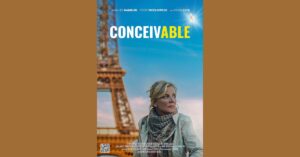By: Laura Bennett
After seven decades capturing some of the extravagant and delicate parts of the natural world, Sir David Attenborough’s new film Ocean with David Attenborough coincides with his 99th birthday to celebrate the wonder, and importance, of our oceans.
Capitalising on developments in ocean discovery, the film shows us the kelp forests, coral reefs and sea grass meadows that contribute to keeping our planet stable and flourishing, while considering what threatens it.
“Over the last hundred years scientists and explorers have revealed remarkable new species,” Sir David said.
“Epic migrations and dazzling, complex ecosystems beyond anything I could have imagined as a young man.
“In this film we share some of those wonderful discoveries, uncover why our ocean is in such poor health, and, perhaps most importantly, show how it can be restored to health.”
Australian underwater cinematographer Tom Park contributed years’ worth of footage of the Great Barrier Reef for the film, having become captivated by the ocean as a kid on holiday.
“I had my first dive when I was 12 [and] almost immediately it was an addiction,” Tom said.
“Being able to float through this zero-gravity environment [and] feel the energy of this underwater world is really hard to shake.
“It’s absolutely stunning and never ceases to amaze you.”
Tom was documenting the impact of a mass coral bleaching event on the Great Barrier Reef when approached for Ocean with David Attenborough.
“To watch [the Reef] fall apart and turn into this desolate white, lifeless landscape void of any colour was hard,” Tom said.
“But we hung around to see what happens after these events set in.”
What Tom found in the Southern Barrier Reef over 14months following the initial event, was that life could come back.
“Large parts of the reef that had been stark white held on,” Tom said.
“You’d start to see these signs of life sprout among the rubble, these signs of life amongst all the destruction.”
Sir David Attenborough puts it that “these little baby corals” became the basis for the foundations of a whole new reef.
“Wherever we have given the ocean time and space, it has recovered faster and on a greater scale than we dared to imagine possible,” David said.
“And it has the power to go even further.”
Currently before the United Nations Council is the High Seas Treaty, an agreement signed by a number of countries wanting to conserve and sustainably use marine biodiversity.
If put into law, the treaty would see the establishment of marine protected areas and require environmental impact assessments of marine-based activity.
“This could be the moment of change,” Sir David said.
“When I first saw the sea as a young boy, it was thought of as a vast wilderness to be tamed and mastered for the benefit of humanity.
“Now, as I approach the end of my life, we know the opposite is true.”
Ocean with David Attenborough is in cinemas now.
Article supplied with thanks to Hope Media.
Feature image: Canva
About the Author: Laura Bennett is a media professional, broadcaster and writer from Sydney, Australia.




